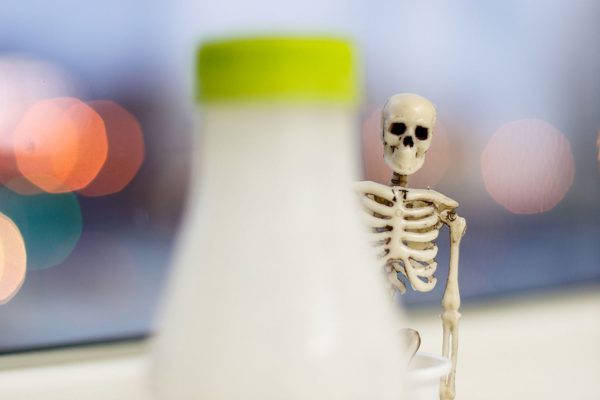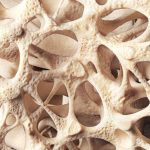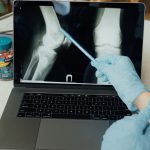Milk. It does a body good.
I agree with this statement… as long as it’s intended for babies who are suckling at their mother’s breasts.
For adults? Not so much.
Back in the days before animals were domesticated, adults didn’t drink milk. Only babies and young children did. And it was human breast milk, not cow’s, goat’s or sheep’s milk.
The fact is, we humans are the only mammals that continue to drink milk after we’ve been weaned. We are also the only ones who consume milk from other species.
How Creative Marketing Generated the Dairy Myth
Despite popular belief, dairy products from cows and other livestock aren’t good for any of us.
This surprises many of my new patients. “But Doc,” they exclaim, “You’ve gotta have milk for your bones!” When I hear that, I know they were highly influenced by all of those ad campaigns than ran back in the day.
And that’s the problem! This bone-building concept came from a team of marketers, not scientific research.
Studies repeatedly show that dairy products have little or no benefit when it comes to your bone health. In fact, just three glasses of milk daily is associated with more bone and hip fractures, and nearly twice the risk of premature death in women.
Plus, the human body was never intended to digest and utilize the milk sugars found in cow’s milk.
You’ve probably heard of lactose – and lactose intolerance. At last count it was estimated that between 30 million and 50 million American adults have this condition.
But D-galactose, which is produced as lactose breaks down, is by far the worst. This milk sugar…
- Prematurely ages the heart muscles
- Increases oxidative stress and reduces antioxidant bioavailability
- Contributes to mitochondrial damage and cardiac dysfunction
- Triggers chronic inflammation
- Increases the risk of certain cancers including prostate, breast and ovarian cancers.
- May contribute to cognitive decline
All in all, patients with higher circulating galactose are at a higher risk of chronic disease in later years. And believe it or not, this includes osteoporosis.
But here’s one of the oddest things I’ve ever encountered.
I’ve seen more than my share of patients with all of the symptoms of lactose intolerance. I carefully explain all of these concerns to them. But it often falls on deaf ears.
They are more likely to blame their digestive complaints on everything BUT milk and other dairy products. After all, milk is wholesome… isn’t it?
I’ll chalk that one up to another one of those fantastic marketing tactics generated by the dairy industry.
Better Sources of Calcium for Your Bones
The truth is, there are many healthier foods that can supply all of the calcium your body needs.
Some healthy, calcium-rich foods include:
- Turnip greens (200 mg/cup), broccoli (180 mg/cup), arugula (125 mg/cup), kale (90 mg/cup), bok choy (74 mg/cup) and other leafy greens.
- Canned sardines (325 mg/3 oz) and salmon (180 mg/3 oz).
- Sesame seeds (280 mg/1 oz), almonds (80 mg/1 oz,) and sunflower seeds (50 mg/1 oz)
- Soybeans (260 mg/cup), white beans (200 mg/cup) and black-eyed peas (183 mg/cup)
Dried figs and dates, soybeans, sweet potatoes, squash, amaranth and oranges also contain appreciable amounts of calcium.
If you don’t think you can get enough of these foods in your diet, there is nothing wrong with supplementing with 1,000 mg of calcium citrate (not carbonate) daily. Take it in divided doses; 500 mg early in the day and 500 mg in the afternoon.
But calcium alone does not build strong bones. It works together with potassium, magnesium, phosphorous, protein and vitamin D.
Avocado, apricots, artichoke, cantaloupe, mangoes and pears are all good sources of potassium. Other foods, such as carrots, peas, broccoli, asparagus, sunflower seeds, almonds are high in magnesium.
You can also supplement with potassium if you physician approves it, along with 400 mg of magnesium each day.
As for vitamin D, it helps your body absorb calcium that would otherwise be flushed down the toilet. You can boost vitamin D levels by getting out in the sun for 15 minutes or more each day without sunscreen. For added protection, take 3,000-4,000 IU of vitamin D3 in the cholecalciferol form daily.
And by the way. If you need something “dairy-like” to replace your milk with, try almond, cashew, oat or coconut milk. Rice and soy milk are good options too.
SOURCES:
Michaëlsson K, et al. Milk intake and risk of mortality and fractures in women and men: cohort studies. BMJ. 2014 Oct 28;349:g6015.
Bo‐Htay C, et al. Effects of d‐galactose‐induced ageing on the heart and its potential interventions. J Cell Mol Med. 2018 Mar; 22(3): 1392–1410.
Qin LQ, et al. Milk consumption is a risk factor for prostate cancer in Western countries: evidence from cohort studies. Asia Pac J Clin Nutr. 2007;16(3):467-76.
Larsson SC, et al. Milk and lactose intakes and ovarian cancer risk in the Swedish Mammography Cohort. Am J Clin Nutr. 2004 Nov;80(5):1353-7.
Health Concerns About Dairy. Physicians Committee for Responsible Medicine.
Petruski-Ivleva N, et al. Milk Intake at Midlife and Cognitive Decline over 20 Years. The Atherosclerosis Risk in Communities (ARIC) Study. Nutrients. 2017 Oct; 9(10): 1134.




